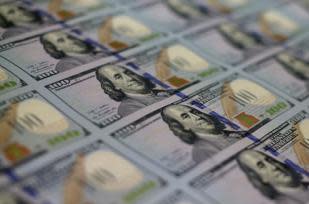Americans’ Wealth Hits a New Record — but Most Don’t Feel It
The total net worth of U.S. households hit a new record in the first quarter of 2013. But there’s a good chance you don’t feel wealthier than ever.

Data from the Federal Reserve show the total value of Americans’ financial and real-estate holdings hit $70.3 trillion in the first quarter, which is an impressive recovery from the ravages of the recent recession. Americans’ total wealth plunged from $66.9 trillion at the end of 2007 to $48.9 trillion in the first quarter of 2009, due to the housing and financial meltdowns. Total wealth has now eclipsed the prior high (though it’s still about 6% below the peak if you account for inflation).
The wealth rebound has helped some Americans a lot more than others, however. The biggest gains have come from financial investments, which account for 82% of total net worth. And this category has recovered much faster than real estate. The total value of Americans’ financial assets hit a new peak last year, and it’s considerably higher now, thanks to a long stock-market rally. The Federal Reserve has pumped up stock prices through loose-money policies that may drive investors out of safe but low-yielding investments such as CDs and into riskier products such as stocks, which can offer higher returns.
Not all benefit
But barely half of adult Americans own stocks, the lowest level in at least 15 years, according to Gallup. And that includes people with stocks tucked away in retirement funds that are not to be touched for years. A rising stock market generates upbeat headlines and makes people feel like things are moving in the right direction, but it generates meaningful income for only a segment of the U.S. population, many of them already wealthy.
The other big category of wealth is real estate, which matters more to ordinary people, since, for many families their home is their biggest asset. Housing wealth has also recovered from the recession, but the total value of $20.8 trillion is still about $4.3 trillion below the peak levels of 2006. The housing recovery began later than the stock-market rebound, and it still hasn’t benefited many property owners.
About 28% of homeowners with a mortgage still owe more than their house is worth, according to research firm Zillow. By definition, such “underwater” homeowners have less wealth than when they bought their homes, since their investment has lost value. Plus, the homeownership rate has been drifting down, which means a smaller percentage of people are even in a position to own equity in a home. Many of the people who went from being owners to renters during the past few years are lower-income people bounced from the housing market as banks foreclosed and underwriting standards tightened.
Incomes, meanwhile, have been flat for years, making it hard for many ordinary people to find the money to buy into stocks or real estate. And the unemployment rate, at 7.5%, is still way too high for many to get ahead or even keep up.
As with other aspects of the economy, the affluent seem to have captured a higher-than-ever portion of the wealth that’s been restored or created since the recession ended. Some of that will trickle down to the regular economy through increased spending, but much of it will remain locked in financial accounts, trust funds and real-estate portfolios. America is in the curious position of having more wealth than ever but still being worse off than it was five or 10 years ago.
Rick Newman’s latest book is Rebounders: How Winners Pivot From Setback To Success. Follow him on Twitter: @rickjnewman.

